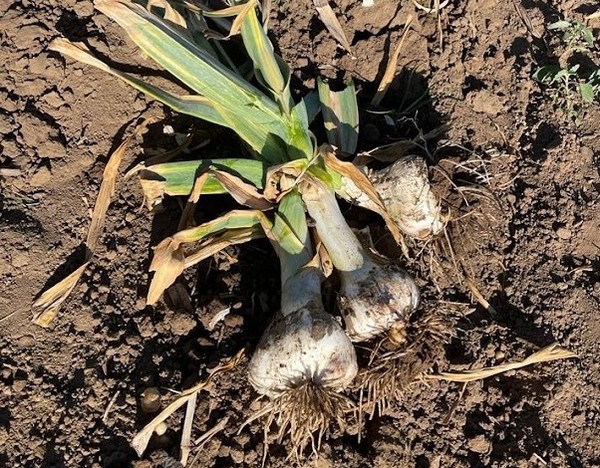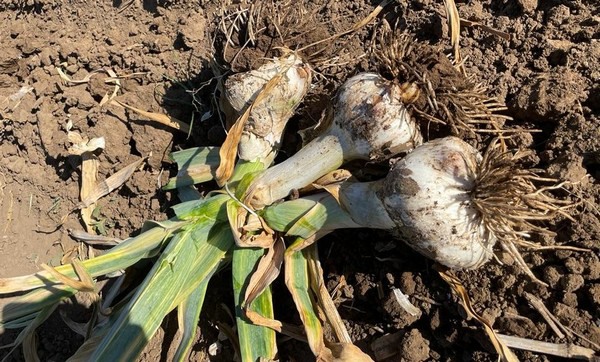"We are at the beginning of a difficult campaign for the garlic season. Markets are changing in light of recent events, creating more insecurity. Moreover, it seems more like patriotic self-interest prevails now rather than the serene and perhaps aggressive all-for-all trade," said Antonio Tuccillo, administrator of Agrimpex Farming.
"The ever-changing and evolving geopolitical situation is also reflected in the trade and production of garlic, and from this season it needs to find its ideal place in every producing country."
 (Photo provided by Antonio Tuccillo)
(Photo provided by Antonio Tuccillo)
According to Tuccillo, in Italy, the local early production is already flooding the markets. In general, sales are stagnant and influenced by goods from last year's cold storage stocks, sold below cost and which are still being sold everywhere in the European Union and Italy, in particular. "Different varieties and origins can be found. There is early garlic and Morado from Spain; Chinese garlic from last year's campaign; the new season's product from Egypt at rock-bottom prices; Turkish garlic with modest quantities."
"In a situation that is already so chaotic, we can also notice the confusion created by improperly labeling the origin of the product," added Tuccillo.
 (Photo provided by Antonio Tuccillo)
(Photo provided by Antonio Tuccillo)
"Spain, the largest producer in the EU, is showing serious problems in harvesting and processing the product, due to labor shortages. Additional problems may arise due to excessive heat, which could definitely deteriorate the quality and firmness of the bulbs. Not least is the scarcity of customers, which will have to be reviewed this year, due to the sporadic nature of the quantities exported or sold so far."
Tuccillo further explained that Egypt, for its part, was hoping for a boom in sales, but had to change its mind upon discovering little interest in the product. "China is suffering from the speculation currently taking place in the Shandong production areas, due to low prices at origin. In addition, it is mainly the high cost of container transportation, which has seen freight rates almost quadruple in the past 2-3 years, that makes it difficult for export operations to take place."
On the prices front, the Agrimpex Farming administrator speaks of a complete shambles. "Quotations are ridiculous and there is little demand. Perhaps only the large-scale retail sector can be saved, as it is managing to offer higher and decent prices for producers. The free market is, on the contrary, dangerously unstable."
